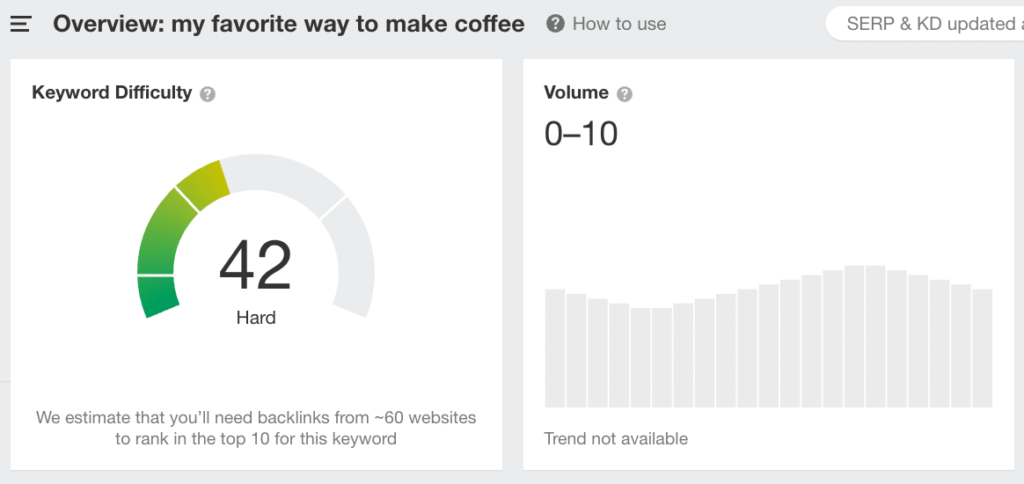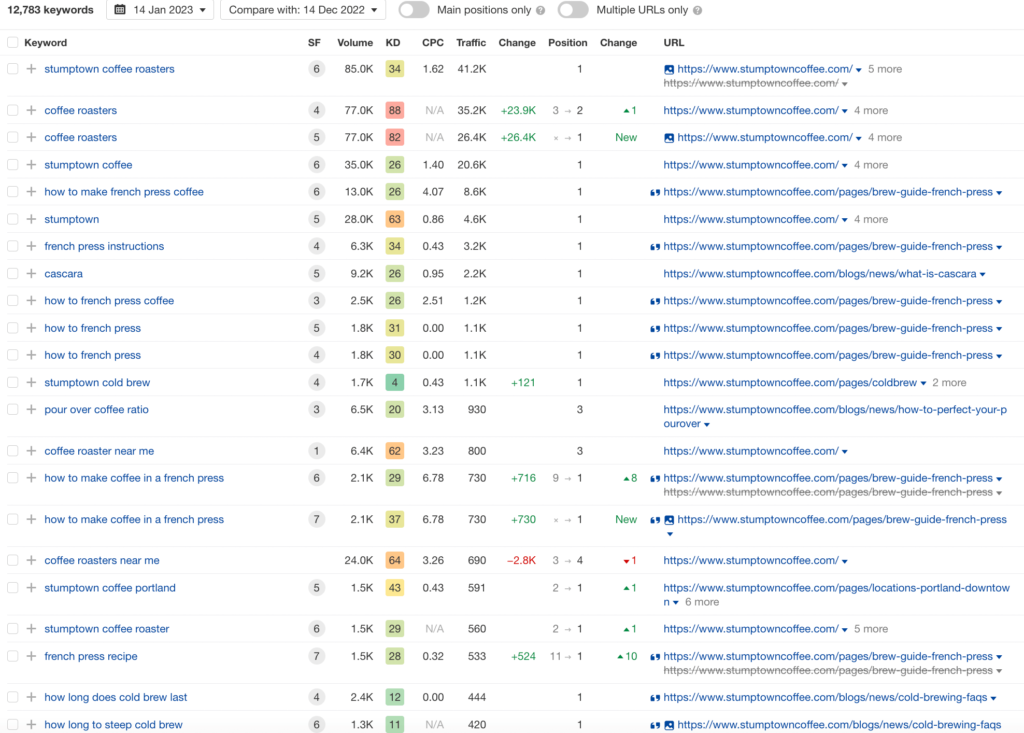
How to Write for SEO
If you’re searching for how to write for SEO, you’re at the right place! Throughout this post, we’ll be discussing the various aspects of writing for both SEO (search engine robots), and writing for your user base (real people searching for your product or service). Thai post is meant to provide you with actionable items you can implement into your content production strategy, while at the same time helping you overcome some of the common barriers many struggle with when it comes to writing for SEO purposes. Enjoy!
Why Writing for SEO is Important, Especially Today
One of the most compelling reasons you should consider writing for SEO purposes is the fact your competition is most likely already producing many articles, blogs, whitepapers, etc… which target specific keywords, keyphrases, or trending topics which search engines love to pick up and display on their coveted first page. If you’re writing for writing’s sake, yes, you may be able to attract the customer base who is in the know within your niche. Yet, what about people who have no idea what your service or product entails, yet they’re searching for broad-level, vague keywords which you could offer a solution for? A prime example of this could be the following:
-Writing without SEO in mind, article title example: “Best Pour Over Coffee Maker”

The screenshot above showcases the benefits of writing for SEO purposes, as opposed to simply writing from an ego-based perspective (i.e.: “look at me and my opinion!”). You’ll always want to disassociate yourself from the product or service you offer at first. The reason behind this fact is simply due to people having no idea who you are. Why should they trust your opinion if you’re writing from an expert-level perspective if you’ve only; written a few posts on coffee? It’s important to first establish yourself as an expert in your field through generalized, broad-level keywords to gather attention to your product or service. From there, you can choose to write about anything you want, as long as it pertains to your respective business niche.
-Writing with SEO in mind, article title example: “My Favorite Way to Make Coffee in 2023”

This title is ego-based and has little to no search volume behind it. Unless you’ve already built up quite the large following online with a coffee-focus persona, nobody is going to give you the time of day. It’s better to remove your ego from the equation when it comes to content production, and realize at first, you’re simply here to provide a solution to a problem, In this case, you’re only here to help guide potential buyers of your coffee making products to read a piece on the best pour over coffee maker; nothing more, nothing less. Now, when you’ve built up a following on your blog through targeting profitable keywords and keypress, you can then take the approach of writing personalized blog posts with your online personality involved; if you choose to do so. Ego-based blogs only work if there’s already a decent to popular following.
Start with Your Ideal User in Mind
You’ll always want to start with your ideal user in mind when writing for SEO. This can be accomplished through online research and figuring out who is already purchasing your product or service, who is not purchasing your product or service, and who may be on the fence when it comes to purchasing your product or service. Once you have these initial conclusions drawn out, you may then move on to the next step: keyword research.
Perform Keyword Research
Keyword research is crucial to any SEO-focused content production project. Without proper keyword research, you run the risk of writing great blog posts, yet nobody can find the blogs you’ve written due to not catering towards search patterns amongst users of Google. Keyword research helps you determine if a keyword is worth going after, or maybe it’s better left off of the content production plan.
If you encounter a keyword which looks like the following:

You’ll want to go after it. It has great monthly search volume, low keyword difficulty, and it’s relevant to your coffee-focused product.
If you encounter a keyword which resembles the following:

You’ll want to forget about this type of keyword, while it does have great search volume, it’s extremely difficult to rank for, and you’ll most likely never reach the level of the competitors who are already ranking for this specific keyword. However, that’s perfectly okay! You don’t have to be ranking for the highest search volume keywords with the greatest level of difficulty. As long as you target easy to moderately difficult keywords, you can still dominate those fields and make your way up the ladder of competition just fine.
Research What Your Competitors are Doing
You’ll certainly want to research what your competitors are doing when it comes to content production and also determine what your competition is already ranking for. Let’s look at an example of what a large-scale coffee roasted is ranking for when it comes to organic coffee:

As you can see from above, this group is raking in some valuable keywords and keyphrases. You can then become inspired by this list, and either write blogs on the same topics, yet with better research and user rvalue, or you can simply find a related subtopic the competition has not yet targeted and win over that sub-niche of the product or service.
Keep It Easily Digestible
You don’t; want to alienate your user base by writing with an arrogant tone. Of course, you want to project your educated stance on the topic(s) you’re writing about, yet at the same time, it’s beneficial to explain the concepts, features, and benefits of your product or service one way your everyday users will be able to understand. If not, you run the risk of coming across as a know-it-all, and nobody really wants to do business with someone who believes they know every single thing, about literally everything.
Ensure Your Headers are Focused On the Topic at Hand
Ths sentence above is an example of a header. Your headers help Google’s search engine robots determine what is valuable throughout your blog posts and will ultimately help target the right keywords which will subsequently assist you in ranking for desirable search terms. Having the right headers throughout your posts can do wonders for your basic on-page SEO efforts. Ensure your headers are up to par with an SEO tool such as Yoast, where there’s a grading tool embedded within the software which helps determine if your post is up to par with what a search engine robot expects when it crawls content. Aside from that, write your headers with both search engine robots and your userbase in mind, and you’ll be a-okay every time you produce a post.
Include CTAs Throughout Your Content
Including CTAs (call-to-actions) throughout your blogs can truly help you convert casual browsers of your website into actual customers or clients. Below is an example of a CTA which may convert you into a client of ours!
Contact UsCTAs are a powerful and helpful way to reel in users who actually want to do business with you in some way, shape, or form.
Write Persuasively, Not “Sales-y”
When you write with a persuasive tone where you break down the true benefits of working with your company, you’re not sales-y; you’re transparent and practical. Nobody likes to be “sold” on a product or service. If your product or service is good enough, it should sell itself. SEO is simply here to help people discover your product or service, not “sell” them on it. Obviously, you’ll want to touch on pain points which will help the user realize you offer the right solution to help their lives function easier. In essence, that’s what a product or service does: helps improve the lives of your customers. SEO just helps those who are seeking out your solutions discover them in the best possible way; via free organic search results.
Offer Value to Your Readers, Whether They Become a Customer or Not
You should always offer some form of value to your readers when it comes to producing content. Now, you shouldn’t give away the farm for free, yet if you can balance the line between offering initial value to attract a potential customer based on enlightening content for your user base, and also attracting them with a proper CTA or other conversion strategy; you’ll be significantly better off than simply gatekeeping valuable solutions. Give a little bit, to get a little bit. It’s as easy as that.
Contact Us if You’d Like Us to Help with Your SEO Efforts
If you’ve enjoyed reading this post about how to write for SEO, you can contact us using the form below if you’d like to see a scalable approach taken with your content production. We offer all of our clients excellent on-site SEO, content production, backlink acquisition, and conversion-rate-optimization strategies to best position the websites we work with above competition. We look forward to hearing from you soon and we’re eager to begin working with you and your company to help accelerate your business growth from an organic perspective.
